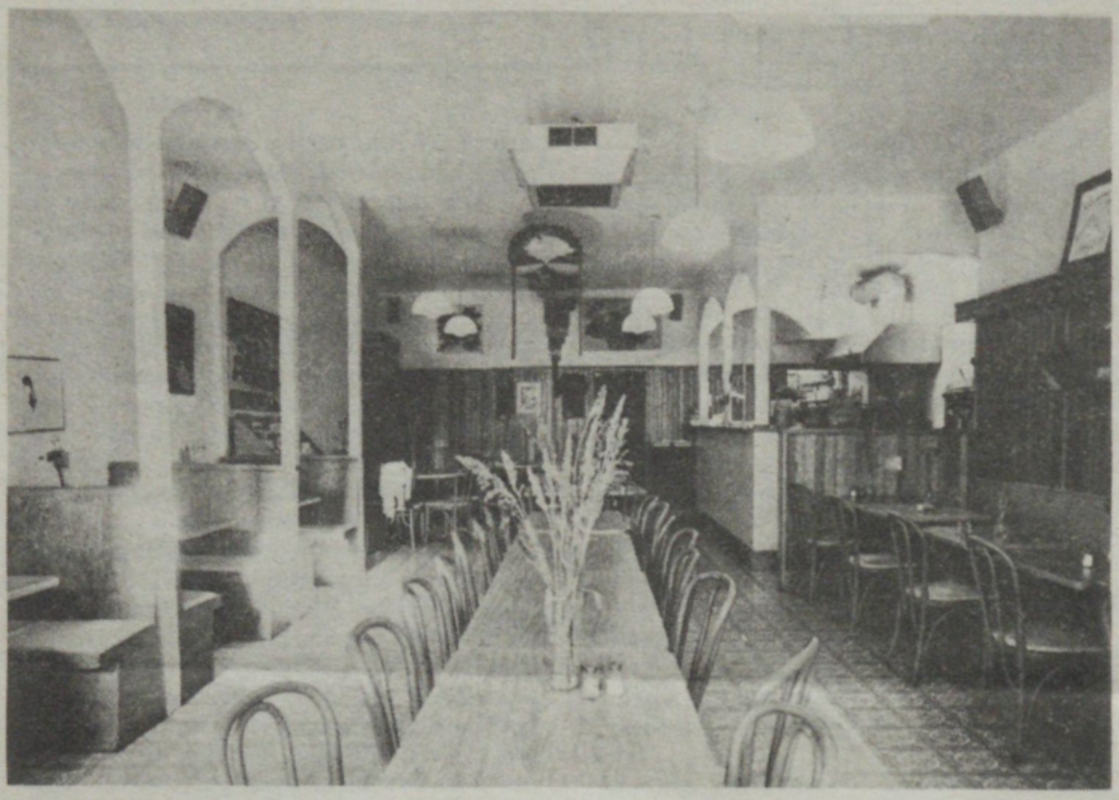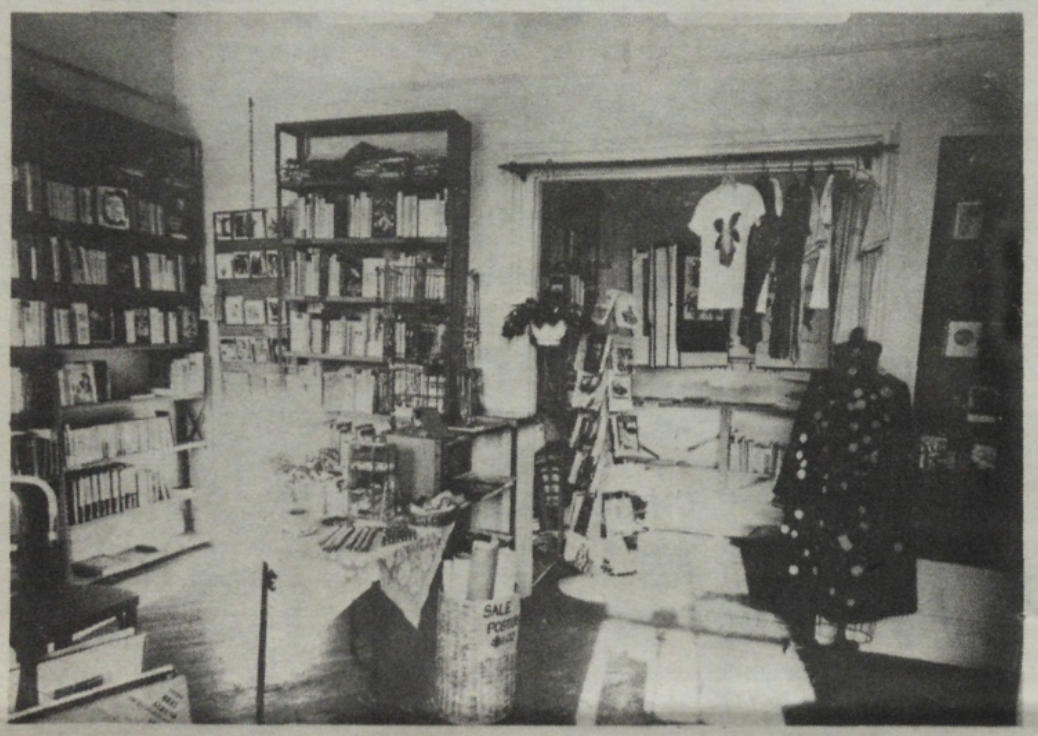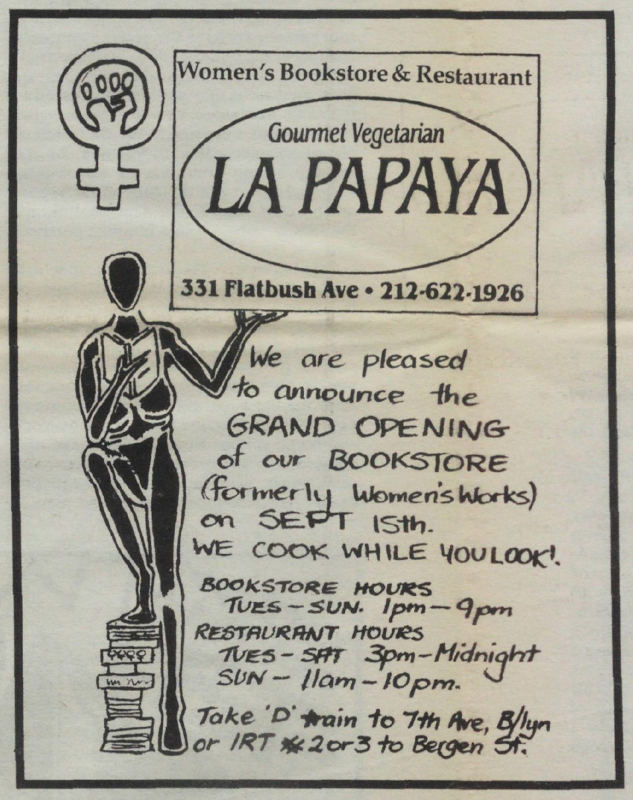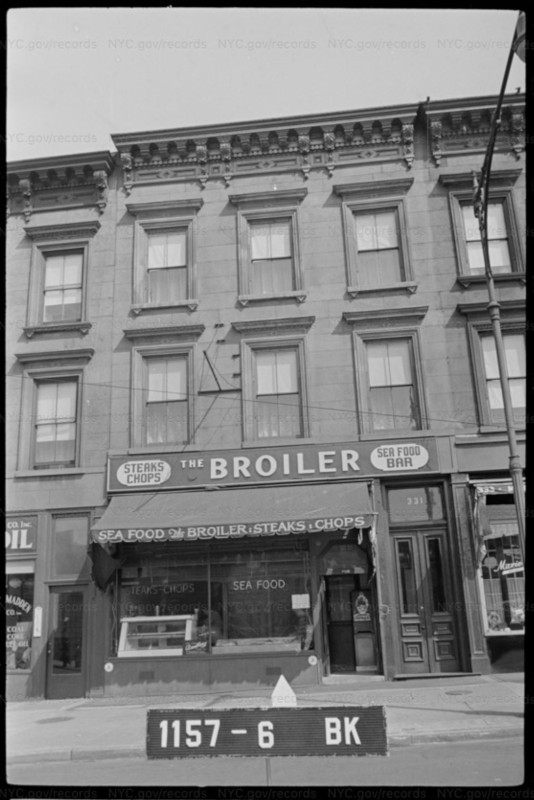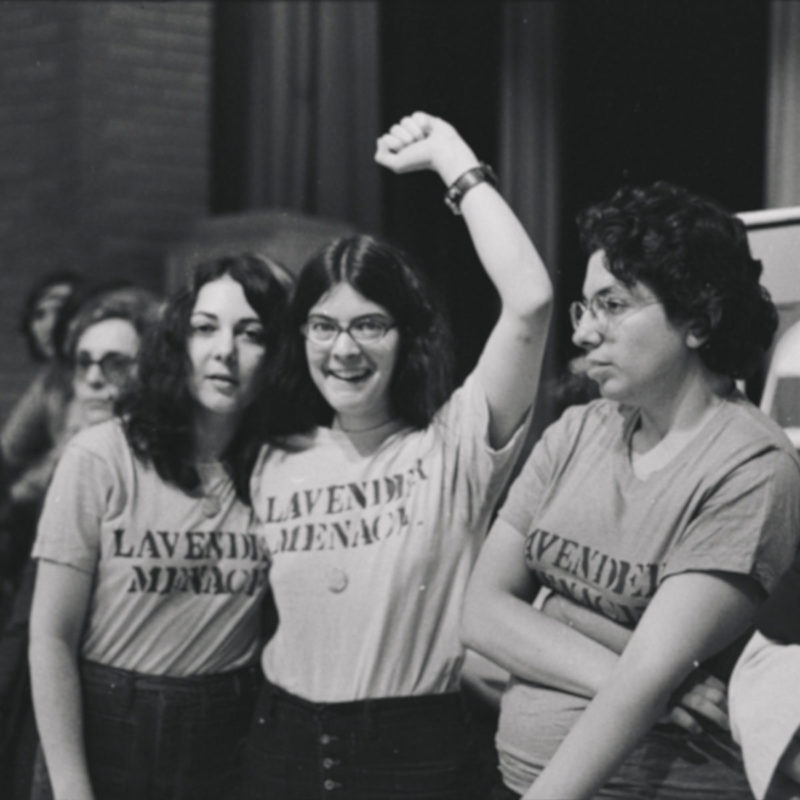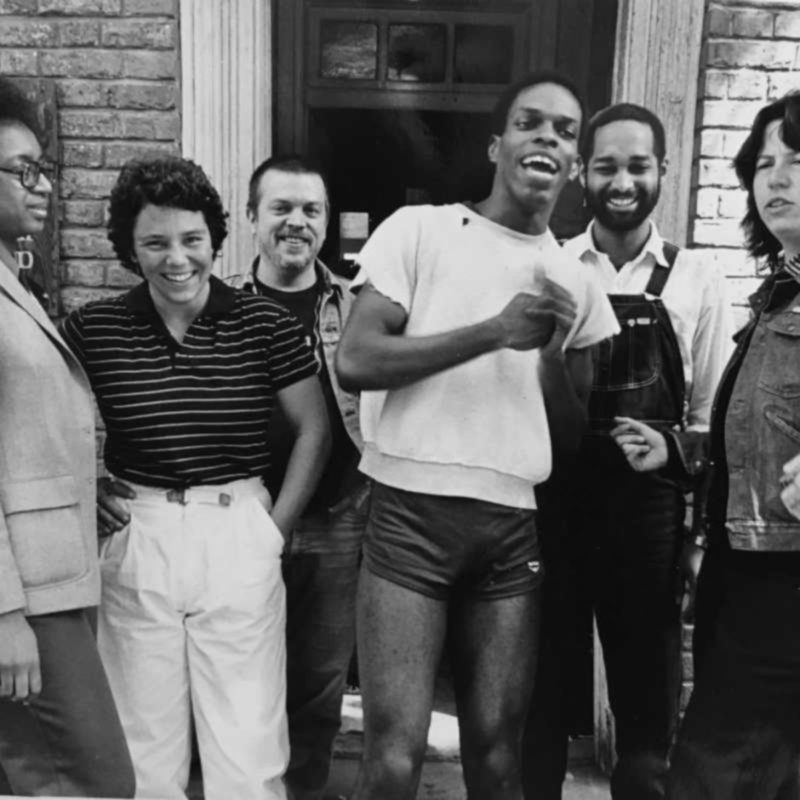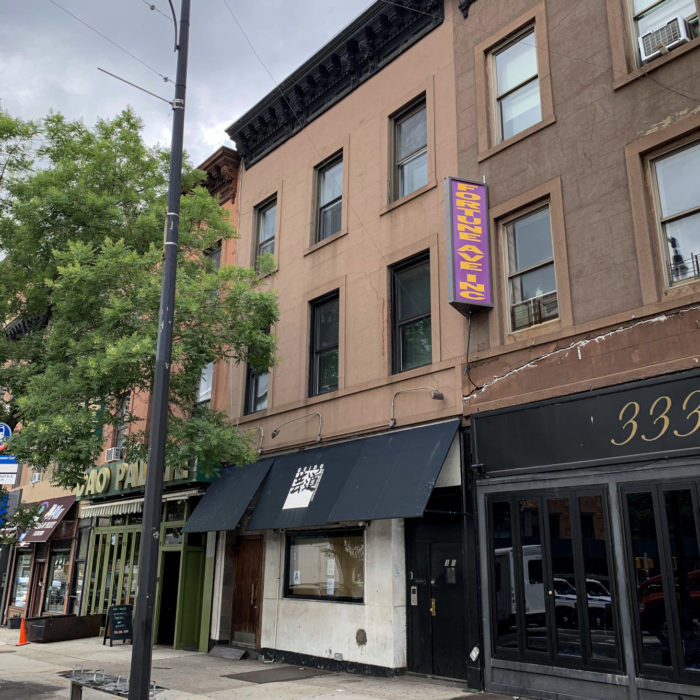
La Papaya
overview
Open from 1980 to early 1983, La Papaya was a lesbian-owned vegetarian restaurant and the only feminist restaurant in New York City at this time.
La Papaya featured Brooklyn’s sole feminist bookstore (above the restaurant) and served as a casual space for women to enjoy feminist literature, entertainment, and company.
History
Owned by Lucy Lloyd and her partner Ellie [last name unknown], La Papaya was a “vegetarian restaurant built by women for women” in Park Slope, an important lesbian neighborhood that was affectionately referred to as “Dyke Slope” at the time. The owners intended to serve New York City’s entire lesbian community, although the primary customers lived in Brooklyn. It was a proudly women’s space, with a neon fuschia sign illuminating “La Papaya” out front and notices informing men that they were only welcome on certain nights of the week. The restaurant’s name likely is a play on the association of a papaya as a sexual innuendo for women in some Latin American countries.
Prior to the opening of La Papaya in 1980, New York City’s other feminist restaurants, Mother Courage and Bonnie and Clyde’s, had closed. Yet, as Karla Jay stated, many women still wanted the “opportunity to eat in restaurants like La Papaya… surrounded by women.” La Papaya was affordable and catered to women of all ethnicities, serving Middle Eastern food on Saturday, Italian food on Sunday, and Jewish food on Thursday. The restaurant prepared traditional holiday meals each season, including Thanksgiving dinner and Passover seder. As the only feminist restaurant in New York City at this time, La Papaya became “the closest thing in New York to mother’s home cooking: sister’s home cooking.”
In September 1981, La Papaya expanded beyond a restaurant into a bookstore. Brooklyn’s only feminist bookstore, Women’s Works, located down the street at 191 Seventh Avenue, had been forced to close. Lloyd purchased all of the inventory and shelving from Women’s Works and opened a bookstore above La Papaya. Customers could shop for feminist books and lesbian periodicals while waiting for their food. With the opening of the bookstore, La Papaya hosted poetry and book readings (including lesbian erotica) in addition to holiday parties and dances:
La Papaya offers a unique space for women… it is a place where you can hold hands, talk, meet other women and listen to women’s music, poetry, politics, and ideas… You can browse around in the bookstore and purchase wonderful consciousness raising presents for friends and yourself.
La Papaya faced numerous struggles that ultimately highlighted the strength of the women’s and lesbian communities. Men attacked the restaurant at least twice, robbing employees at gunpoint and raping one of the owners. However, the Park Slope women’s community rallied to support the restaurant, volunteering to guard the entrance and raising money for a new security system. La Papaya closed prematurely in 1983 despite being an “extremely important part of the women’s community at Park Slope” due to financial concerns. Yet, in the aftermath of its closure, the lesbian community began asking questions about how to better support women- and lesbian-owned businesses.
Lloyd continued to promote women’s spaces after La Papaya closed. She ran the La Papaya bookstore on Fridays out of her home at 24 Prospect Place while working at Womanbooks. The Third World Women’s Alliance, a socialist group of women of color, moved their archives into the former La Papaya bookstore, although it is unclear how long the archives were located here.
Entry by Emily Kahn, project consultant (July 2020).
NOTE: Names above in bold indicate LGBT people.
Building Information
- Architect or Builder: unknown
- Year Built: c. 1899
Sources
Audrey Roth, “La Papaya–Guarding the Treasure–Women’s Space,” Womanews 2, no. 9 (October 1981), p. 3.
Coffeehouses, March 1988- November 1999, Lesbian Herstory Archives, Subject Files: Part 2: Breasts-Fem, Folder No. 03410. [source of pull quote]
Dorothy Barenholtz, “Closed for Business,” Womanews 4, no. 2 (February 1983), p. 2 & 14.
Jeanne Bowlan, “Quality Commercialism: Food for Thought,” Womanews 4, no. 4 (April 1983), p. 2.
Karla Jay, “New York on 5 Dykes a Day,” Philadelphia Gay News 5, no. 25 (October 2-15, 1981), p. 11.
Lois Hart & Laura Levin, “Letters,” Womanews 4, no. 2 (February 1983), p. 14.
Lucy Lloyd, “Still a Women’s Space,” Womanews 4, no. 5 (May 1983), p. 2.
“Mystery Woman Contest,” Womanbooks Review 2, no. 5. 1983, p. 2.
Restaurants: Coffee Houses, April, 1973-March 30, 2002 and undated, Lesbian Herstory Archives, Subject Files: Part 5: Peace Corps-Speakers Bureau, Folder No. 12360.
S.L. Thames, “Food,” Womanews 2, no. 1, December-January 1981, p. 14.
“Women’s Works in Crisis,” The New York City News 2, no. 9 (May 5, 1981), p. 2.
Do you have more information about this site?
This project is enriched by your participation! Do you have your own images of this site? Or a story to share? Would you like to suggest a different historic site?
